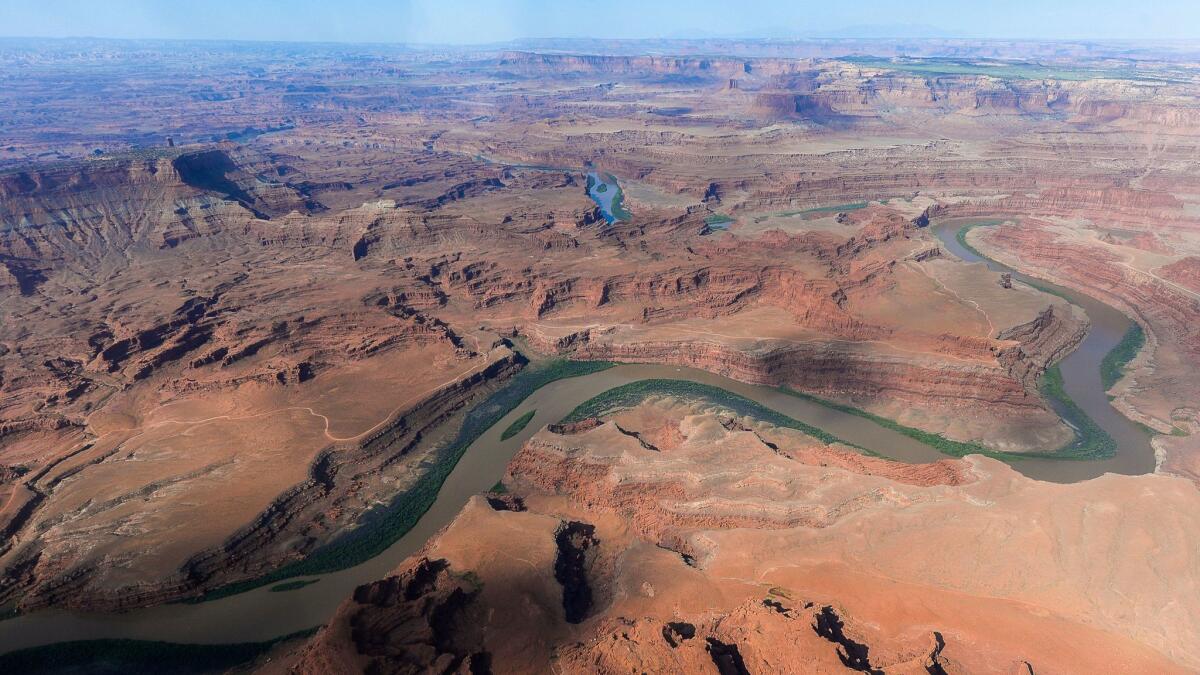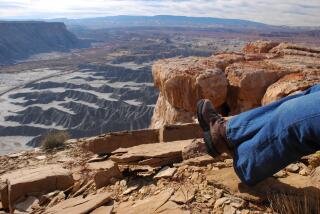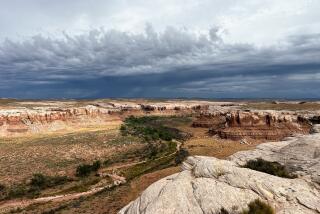The president did the right thing: Bears Ears National Monument

President Obama deserves our gratitude for designating the rich natural and cultural treasure of the Bears Ears region in southeastern Utah as a national monument. He had to think big. In granting 1.35 million acres of federal land new, needed protections, he preserved for the future a place of learning, grandeur, sanctuary, and healing.
Against political headwinds, Obama used the executive power inherent in the Antiquities Act of 1906 â the same legislation that initially protected four of Utahâs âMighty Fiveâ national parks. Arches, Zion, Bryce Canyon and Capitol Reef were all presidential-proclamation monuments first; Canyonlands was created as a park by Congress.
The president acted on behalf of our children and grandchildren, on behalf of the last canyon treefrogs singing in Slickhorn Gulch along the San Juan River, on behalf of the Navajo medicine man gathering herbs on the forested mesas of the Bears Ears. His action will be a boon to Utahâs rural economy.
For Native people, these canyons and mesas arenât âdesertâ or âwildernessâ or âdestination.â These redrock labyrinths are home. For millennia, people have woven cultural identity into this ground. Artifacts, ruins and rock art from the Ancestral Puebloans carry essential messages to the Hopi and Zuni of our time and to all of us.
The Republicans who dominate Utahâs politics are already threatening to repeal not only the Bears Ears designation but the Antiquities Act itself.
For the first time in conservation history, the primary advocates for this new national monument were Native American tribes. In October 2015, the Navajo, Ute Mountain, Hopi, Zuni, and Ute nations presented the Obama administration with a proposal to preserve and co-manage public lands they consider sacred. The full membership of the National Congress of American Indians supported them. Remarkably, given the history of Indian people and the United States, the government listened.
By establishing this national monument, Obama has protected canyons actively consecrated and blessed by Native prayers, living libraries of indigenous traditional knowledge. All of us, Indian and non-Indian, will deepen our relationships with âhomeâ as we come to know this landscape.
As Willie Grayeyes of the Bears Ears Inter-Tribal Coalition put it, âprotecting Bears Ears is not just about healing for the land and Native people. Itâs for our adversaries to be healed too. I truly believe we can all come out dancing together.â
President Obama also established Gold Butte National Monument on Wednesday, at the western edge of the Grand Canyon in Nevada, taking advantage of another opportunity to protect rich archaeological resources from relentless vandalism and amplifying the vision of co-management by tribes, this time with the Moapa Paiute people.
The elected officials in Utah who argued against the national monument â including the entire Utah congressional delegation â struck the same hackneyed chords used by Utahâs governor more than 50 years ago when he opposed creating Canyonlands National Park because the state might need all those rocks for building material.
A so-called compromise plan introduced by Utah Representatives Rob Bishop and Jason Chaffetz would have preserved far fewer acres of incomparable wildlands and accelerated energy development and mining on public lands across much of eastern Utah. The tribes turned to the president when they felt the congressmen were not listening to them.
The Republicans who dominate Utahâs politics are already threatening to repeal not only the Bears Ears designation but the Antiquities Act itself. They attack the very idea of federal public lands, and repeat false claims about the monumentâs effects (it wonât prohibit Native uses such as woodcutting and herb gathering). They rail against the exclusion of local voices in decision-making, but at a Dec. 19 press conference refused to speak to the elected tribal leaders from the Ute and Navajo nations.
The president has done right by Bears Ears, and brought into being a never-before-dreamed-of reconciliation in the form of co-management by federal agencies and tribes. He has acted boldly for preservation in Utah and elsewhere, protecting Alaskaâs Chukchi and Beaufort seas from risky drilling, designating the Katahdin Woods and Waters as a national monument in Maine, and establishing and extending enormous marine preserves.
When Donald Trump becomes president, there is little chance weâll see such irreplaceable land- and seascapes protected. With a Republican Congress bent on repealing every shred of Obamaâs legacy, with Bishop (chair of the House Committee on Natural Resources) angrily pushing bills that would open up public lands to development and greed, thereâs yet more Obama should do.
A proclamation for Greater Grand Canyon Heritage National Monument, a preserve that permanently protects the Greater Grand Canyon watershed, awaits the presidentâs signature. Between now and Jan. 20 there is time enough to act again. Lyndon Johnson was still signing national monument proclamations as he dressed for Richard Nixonâs inauguration.
May the president keep using his pen and the power of the Antiquities Act before we lose such opportunities for the next four years, maybe eight, maybe even longer.
Salt Lake City writer Stephen Trimble is editor of the forthcoming âRed Rock Stories: Three Generations of Writers Speak on Behalf of Utahâs Public Lands.â
Follow the Opinion section on Twitter @latimesopinion and Facebook
MORE FROM OPINION
Trump must prove that he supports âour LGBTQ citizensâ
Ivanka Trump is not going to save us
What Kerryâs speech says about the Obama administrationâs Israel strategy
L.A.âs proposed ban on single adults near playgrounds is fear-based policy making at its worst
More to Read
Sign up for The Wild
Weâll help you find the best places to hike, bike and run, as well as the perfect silent spots for meditation and yoga.
You may occasionally receive promotional content from the Los Angeles Times.






